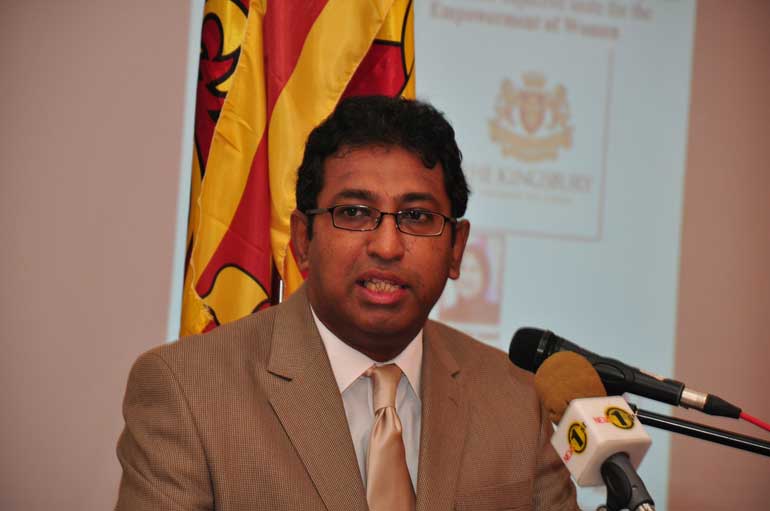Sunday Feb 22, 2026
Sunday Feb 22, 2026
Monday, 14 March 2016 00:10 - - {{hitsCtrl.values.hits}}
 Foreign Affairs Deputy Minister Dr. Harsha de Silva
Foreign Affairs Deputy Minister Dr. Harsha de Silva
By Shannine Daniel
Sri Lanka is losing about 20% of its per capita GDP due to the gender gap in employment, Deputy Minister of Foreign Affairs Harsha De Silva recently revealed
Addressing the inaugural Women’s Forum Sri Lanka, he also stated that Sri Lanka had one of the lowest representations of females in the labour force.
“In Sri Lanka, less than 76% of eligible men actively look for work, however less than 35% of eligible women seek jobs,” Dr. de Silva further stated.
According to Central Bank statistics of 2013, Sri Lanka has one of the lowest rates of female labour participation when compared to a few other countries in the Asian region, with Bangladesh at 58%, Malaysia at 44%, Nepal at 80%, Singapore 54%, Thailand 64%, China 64%, Cambodia 79% and Vietnam 73% whereas Sri Lanka is at 34.8%. However, India has a lower female labour force participation rate of 27%.
“If 65% of the women are eligible to work yet do not want to work, we need to find out the issues which are holding them back and come up with appropriate solutions to these problems,” asserted de Silva.
He emphasised that one reason women were more reluctant to partake in employment was because they primarily needed to take of their households and families. “It all comes down to how much a man participates in the housework and how much free time a woman has to engage in outside work,” the Deputy Minister noted.
De Silva also added that providing secure day care centres and crèches for children would encourage women to engage in jobs.
Focusing specifically on the rural areas, De Silva pointed out that housing facilities for women who work at a more technical level in places such as factories was another factor. Concerns over secure houses or other accommodation of a good standard discourage women in rural areas from searching for work in urbanised areas and therefore they opt to stay at home with their families.
“Another issue is transportation. Our bus and train services are crowded, difficult to travel in and can be time-consuming. This is a macro issue because it concerns the men in our country as well and needs to be addressed on a larger scale. However studies have shown that it is more troublesome for women,” stressed Dr. de Silva.